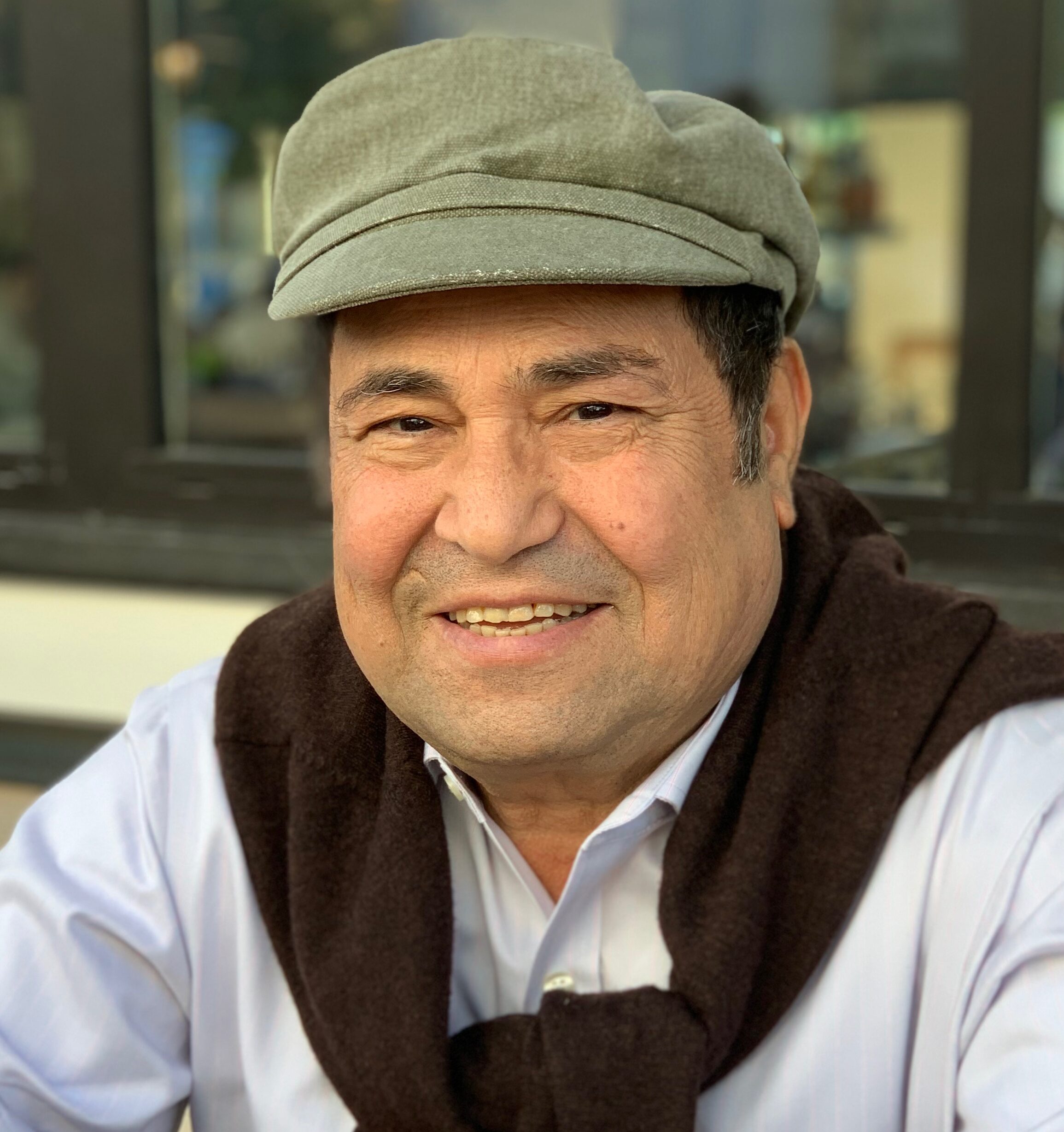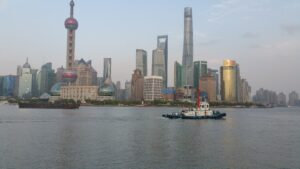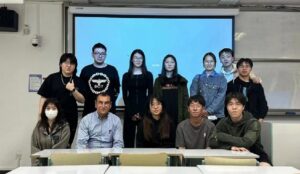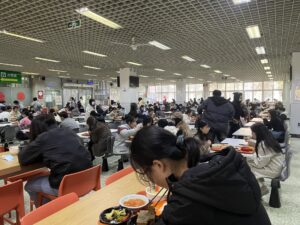
أفكار حُـرّة : رئيس التحرير محمد حسين النجفي
صوت معتدل للدفاع عن حقوق الأنسان والعدالة الأجتماعية مع اهتمام خاص بشؤون العراق
My Impressions of People’s China and Its Development
Dr. Shak Hanish (Director of the Political Science Program at National University in California – USA) 
These are some of my impressions of the People’s Republic of China from my recent visit as a university professor to give lectures on culture, history, and politics in the Arab region and the Middle East. I presented at three leading universities in foreign languages: Beijing Foreign Studies University, Shanghai International Studies University, and Beijing International Studies University, where I stayed for a month and a half.
Introduction:
China occupies a prominent position as one of the largest countries in the world in terms of population and area. In terms of population, China is the largest or second-largest country in terms of population. In terms of area, China ranks third among countries worldwide. China is one of the leading powers on the global stage due to its rich history and significant influence on a wide range of economic and cultural aspects. China is a socialist country that blends ancient traditions with modern progress harmoniously. China is currently experiencing tremendous economic growth, remarkable technological advancement, and plays a major role in international affairs.
The Beauty of China:
Beijing, the capital, is a charming city with its beauty and rich history, characterized by parks like Jing Shan Park in the center of the Chinese capital Beijing, where entry was free for anyone over sixty years old. The park was an amazing and very beautiful place. The park is very large, about 57 acres, with many entrances and multiple hills, each with a beautiful Chinese building in the old style. Beihai Park in Beijing is an extraordinary place. It is known as the North Sea Park and is one of the oldest, largest, and best-preserved ancient imperial gardens in China, with more than 1000 years of perfect integration between magnificent imperial palaces and religious temples. In addition to the Great Wall of China, the Summer Palace of the Emperor, the Forbidden City, Tiananmen Square, the Temple of Heaven, the Olympic City, the Three Lakes, and others. In Shanghai, the largest city by population, modernity blends with antiquity, characterized by its distinctive modernity, beautiful river, picturesque banks, bustling East Tower, People’s Square, Nanjing Road, and others. Nearby is Suzhou, which is similar to the Italian city of Venice, hence called the Venice of the East. There is also a park near my university residence (Zuibaichi Park), which is very wonderful and stunning. At that time, I wrote, “I do not exaggerate if I say that China is a piece of paradise. I have been in China for over a month now and have never felt bored for a single day.” Every day, I had an event and a beautiful story about this country and its kind people.
Students and University Life:
Beijing Foreign Studies University was ranked first in China for foreign languages. I was invited to give three lectures, each lasting two hours, on the following topics: Names and Designations in the Arab World, Who Are the Arabs and Their Modern History, and the Arab-Israeli Conflict. These were my best lectures. I was amazed by the quality of the students’ questions and discussions. Among the questions from students were about Stalin and the concept of nationalism and nation, the relationship between communists and nationalists during the Nasser era, and populism since the Abbasid era, among others.
I stayed for a whole month at Shanghai International Studies University in the Arabic Language Department, where I delivered 11 diverse lectures to master’s students on Arabs, their origins, Arab culture, Islam, Islamic extremism, Arabs’ contributions to human civilization, ISIS, minorities in Iraq, popular Arab proverbs, Arab diaspora in the world, Arab cultural values, social changes in the Arab region, the Arab-Israeli conflict, and Iraqi culture. I also gave three other lectures at Beijing International Studies University.
The design of the Arabic Language Department in two of the three universities resembled a dome similar to a mosque’s dome. In Shanghai, the Russian Studies building resembles an Orthodox church, and the English Language Department building resembles a traditional English building, as well as for Japanese and others. There are dozens of colleges that teach Arabic language and culture, and every country that has relations with China has its language studied in China.
Students in China are very serious and hardworking. However, they do not usually participate in discussions or speaking in class; instead, they usually remain silent, listen, and take notes unless forced to speak. This seems to be the traditional Chinese way, but they excel in exams and when encouraged to participate. Almost all students in the university live in dormitories or university apartments, even if they are from the same city. Dedication and seriousness are evident among Chinese students. The university environment is characterized by the facilities available to students.
Moreover, if you are a visiting foreign professor, you will experience care, respect, and appreciation and feel like a special person. Wherever you go, there is respect, gratitude, and appreciation. In every university I visited, there was a student, usually in the final years or at the master’s level, designated to receive me at the airport, accompany me to the hotel inside the university, and provide services if you need anything. What is distinctive in China is that almost all universities have large hotels for professors, foreign students, or visitors. Additionally, there are apartments in addition to the many dormitories for students.
When I went to some universities, what I saw was very distinctive: if you study any foreign language, you must study English alongside it because English, as we know, is the language of communication and connection between peoples.
Furthermore, what distinguishes Chinese universities is that in postgraduate studies, when you study Arabic or another foreign language, you specialize in something else. For example, you specialize in international relations or the Middle East, etc.
I also noticed that in every university I visited, there were Islamic restaurants. Those who frequented them were not only Muslim students but also many other students. The food is affordable, with many choices. Sometimes the price is based on weight.
Technology in Daily Life:
One thing that caught my attention is the use of technology in China compared to the United States. For example, when you leave home and are at university and want to exit the campus, you must use the app called “WeChat.” Entry to the university is restricted; only students, professors, and staff are allowed. Everyone enters using facial recognition technology.
You’ll notice food bags outside the university building from students’ orders through the phone app. Each student comes to collect their order outside the university entrance, and no one touches or steals them.
Everything is done through the phone. You can order food inside some university restaurants and pay your bill without talking to anyone. If you want to take a bike, for example, from the university gate to the metro station, you use the same app. When you arrive at the train station and want to enter, you use it. To buy a train ticket between cities, enter a museum, buy a water bottle or juice, or do anything else, even street vendors use the same app for scanning to pay for what you buy.
You see robots in the university restaurant in Beijing and in the hotel, I stayed at in the capital, and you see them in the streets of Shanghai University providing services.
The People’s Culture:
The Chinese are extremely polite; you don’t hear anyone’s voice. They are also respectful. What also distinguishes China is that there’s no sensitivity from foreigners; instead, they are respected and often asked to take pictures with them. It’s common for Chinese citizens, especially from Chinese provinces, to stop you for pictures because you look different from them.
Elderly Care, Children, and Public Services:
In continuing the Chinese culture and ethics, most children are taken care of by grandparents when parents are usually at work. It’s their duty to take the children to school and care for them until the parents return. Thus, Chinese customs, traditions, and ethics are passed from generation to generation.
Public transportation in China is very available, efficient, and affordable. This is also true when visiting historical buildings, large parks, and amusement parks. What impressed me most is that there are health facilities (bathrooms) everywhere you go, with signs indicating how far these health facilities are from you. They are clean, with workers constantly serving them. In one year, they built two million health facilities in the country. There’s a sign in health facilities that says, “This is a small step forward, a big leap towards civilization.”
Trains are available between cities. The fast ones are called bullet trains because of their speed. Adults over 60 years old can often ride for free, especially in historical buildings, public parks, imperial palaces, or religious temples.
Women retire at 55 years old, and men at 60 years old, and retirement income is usually close to regular income.
When you sit in a restaurant, warm water is brought to you because it’s healthier and matches the internal body temperature. There may be some flowers in the water for flavor or appearance, unlike American restaurants where cold water with ice is served.
There are beautiful and important streets, similar to upscale streets in New York or Los Angeles. For example, Nanjing Road in Shanghai and Wangfujing Street in the capital Beijing.
What’s striking is that you don’t see loiterers, beggars, or people under the influence of drugs, as you might in the United States. Everyone is working and serious; when you’re on the tram or train, everyone is reading, and everyone’s eyes are on their phones. If you need any help, they offer it, and sometimes they want to pay for you.
The Joyful Chinese People and Their System:
In public parks, along the coasts, and on public streets, what is joyful and exciting is that I saw several groups of people, mostly retirees, in musical bands singing opera, other songs, or performing various dances representing Chinese ethnic groups or modern dances. In a large park, an elderly woman and a middle-aged woman caught my attention as they stood aside and continued singing while being very joyful. Are there any other people like this? I don’t think so based on my visits to more than 70 countries around the world. The more I interact with these people, the more it attracts me to them to the point that I consider living among them for a long time.
China believes in the socialist system with Chinese characteristics, and the Chinese Communist Party has a leading role in managing the economy and controlling key aspects. It directs the economy in the public, private, and mixed sectors, working to implement short-term and long-term plans through centralized planning and adjusting plans to serve Chinese economic and social development. Regarding China’s relations with foreign countries and its methods of dealing with them, China does not impose conditions or restrictions like the United States and Western countries. China also does not attempt to interfere in the affairs of other countries. The most important thing for them is building trade relations and mutual respect; they do not care about the nature of the system they deal with. What matters is that there is mutual trade and mutual benefit.
Conclusion:
China is a wonderful, distinctive, and different country by all standards. The culture is great, and the Chinese people are hardworking, diligent, organized, obedient, and polite. There are many things that distinguish China from other countries in the world, including the United States, where everyone works or excels in their work. There are no signs of decay or cases of drug use in the streets, no begging or homelessness, or inappropriate behavior in public. Students are always studying and working hard, and everyone is busy with their work and dedicated, so I expect that due to the struggle and nature of this people, China will take the first place economically in the world in a relatively short period of time.
Dr. Shak Bernard Hanish
#China


